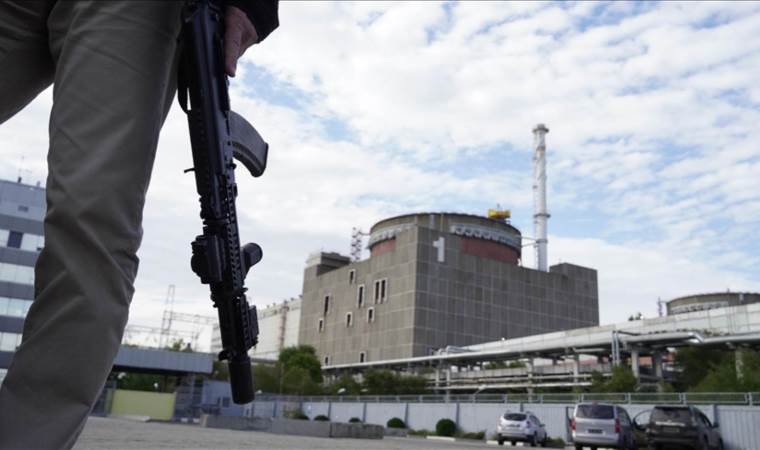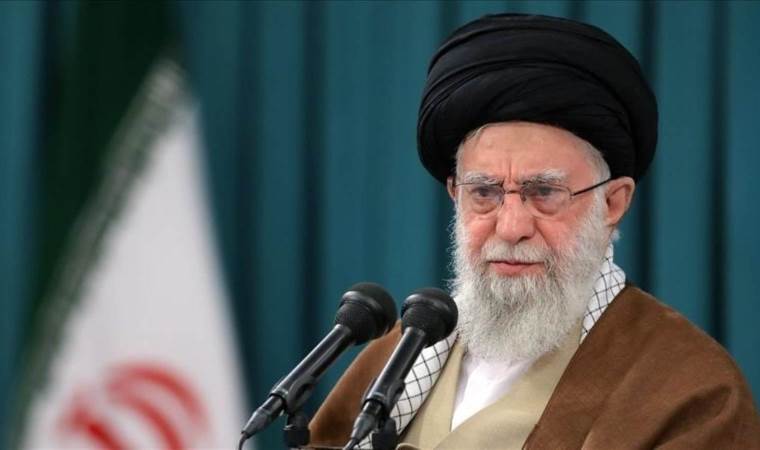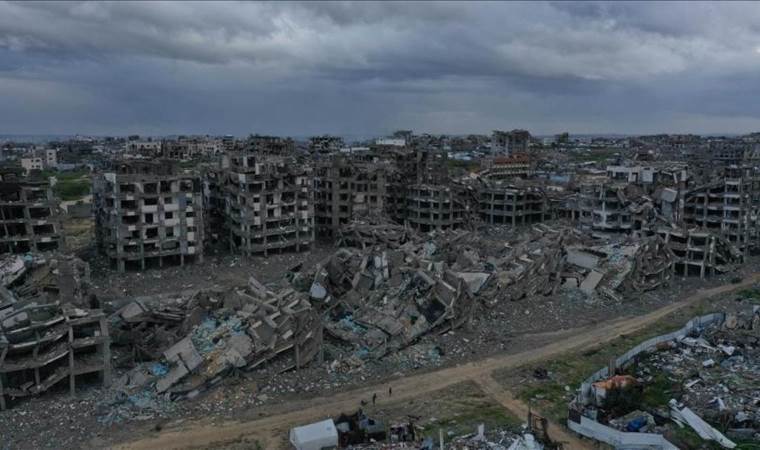Qatar faces international scrutiny over human rights violations
From labor rights abuses to restrictions on women's rights, freedom of expression, and the right to assembly and protest, Qatar has faced persistent and widespread criticism for years. These concerns have resulted in 317 international human rights recommendations under the UN Universal Periodic Review (UPR), which extends until April.

A review by Anadolu of international reports—particularly from human rights organizations—reveals key concerns regarding Qatar’s human rights record, summarized as follows:
1. Violations of workers' rights
Amnesty International’s 2024 report on 2023 findings stated that “hundreds of thousands of migrant workers paid illegal recruitment fees, or had wages withheld, and have not had redress. They were especially vulnerable to exploitation and workers raising complaints and protesting about their treatment.”
“Qatar has introduced grievance mechanisms but workers must be in the country to access its labor courts and compensation scheme,” it added.
Hundreds of security personnel and contract workers protested in Qatar after working excessive hours with no rest days at 2022 FIFA World Cup venues, demanding full payment of their dues. However, foreign workers remain prohibited from forming or joining labor unions—a right granted only to Qatari citizens.
According to Amnesty International, “foreign workers continue to face obstacles in seeking redress and compensation for various violations,” while Qatari authorities have “failed to effectively investigate migrant worker deaths or hold employers and officials accountable.”
In July 2024, Michael Page, deputy director of the Middle East and North Africa Division at Human Rights Watch, warned that a proposal by Qatar's Shura Council to reinstate exit permit requirements for domestic workers “puts them at greater risk of abuse.”
Page emphasized that “the Qatari authorities should reject these recommendations and look to expand and improve on their 2020 reforms,” noting that “international human rights law provides that ‘everyone has the right to leave any country.’ Any restrictions can only be on a case-by-case basis, for a legitimate reason.”
The 2025 Human Rights Watch World Report highlighted that foreign workers comprise approximately 91% of Qatar's population and remain subject to the abusive kafala (sponsorship) system that gives employers disproportionate control over workers.
The report added that “abusive elements of the kafala system remain intact. Workers still struggle to change jobs easily as in practice they are required to obtain signed letters from their original employer approving their resignation. Workers are unable to change jobs even when their employers fail to pay them.”
2. Freedom of expression
Human rights reports indicate significant restrictions on freedom of expression in Qatar.
According to Amnesty International’s 2024 report, Qatari authorities “continued to curtail the rights to freedom of expression and peaceful assembly, including by arbitrarily detaining individuals for exercising their human rights.”
It also documented arrests and repression of individuals protesting Qatar’s electoral law, which discriminates against the al-Marri tribe.
A 2020 Amnesty International report titled “Repressive New Law Further Curbs Freedom of Expression” condemned “a new vaguely-worded law which criminalizes a broad range of speech and publishing activities stands to significantly restrict freedom of expression in Qatar, barely two years after it acceded to the International Covenant on Civil and Political Rights (ICCPR).”
The report said that the new law contradicts its 2018 commitment to international human rights treaties. “This law effectively signals a worrying regression from commitments made two years ago to guarantee the right to freedom of expression.”
Lynn Maalouf, then the Middle East research director at Amnesty International, said: “Qatar already has a host of repressive laws, but this new legislation deals another bitter blow to freedom of expression in the country and is a blatant breach of international human rights law.”
She called on Qatari authorities to repeal such laws “in line with their international legal obligations, not adding more of them.”
In August 2021, Qatari authorities were accused of suppressing protests by members of the Al Murrah tribe against an “arbitrary law” that barred them from running in Shura Council elections. Tribe members shared their grievances on X.
The Qatari Ministry of Interior later announced on X that seven individuals had been referred to the Public Prosecution for allegedly using social media to spread “false news” and incite “racist and tribal tensions.”
3. The right to vote
Following these protests, Qatar’s Shura Council reverted to an entirely appointed system after holding a single election cycle (2021–2024). In late 2024, the council voted to amend the constitution, eliminating elections for two-thirds of its members in favor of government appointments. The amendments were approved in a public referendum, with 90.4% voting in favor.
4. Women's rights
According to Amnesty International’s 2023 report, “women continued to face discrimination in law and practice. Under the guardianship system, women need the permission of a male guardian – usually their husband, father, brother, grandfather or uncle – to marry, study abroad on government scholarships, work in many government jobs, travel abroad if aged under 25, and access reproductive healthcare.”
The 2025 Human Rights Watch World Report confirmed these findings, stating that “women in Qatar face mobility restrictions preventing them from moving freely in their own country and traveling outside Qatar without the permission of their male guardians. For example, female students in Qatar are required to show that they have male guardian permission before they can go on field trips or stay at or leave campus accommodations or grounds.”
5. Allegations of physical violations
On March 24, 2025, Australian women resumed a lawsuit against Qatar Airways, alleging physical violations nearly four years after an October 2020 incident.
In October 2020, authorities discovered a newborn baby abandoned in a trash bin at Hamad International Airport, prompting a police investigation to identify the mother.
Several Australian women later sued Qatar Airways in 2022, claiming they were subjected to “humiliating strip searches” in an attempt to determine if they had recently given birth when they were on a flight from Doha to Sydney, according to Western Media reports then.
The women sought compensation for “unlawful physical contact, arbitrary detention, and assault,” claiming that Qatar's Civil Aviation Authority has a duty of care to prevent them from being harmed while at Doha airport.
In April 2024, an Australian federal court dismissed the case, but the women filed an appeal. In a recent hearing, the court informed the plaintiffs that their case could qualify for compensation under the 1999 Montreal Convention, which governs airline liability worldwide.
Under this treaty—ratified by both Australia and Qatar—passengers can seek compensation in courts at their flight’s destination or in their country of residence.
6. The ‘Bidoon’ and climate issues
The 2025 Human Rights Watch World Report addressed the Bidoon (stateless people) crisis in Qatar, stating that: “Qatar’s decision to arbitrarily strip families from the Ghufran clan of their citizenship since 1996 has left some members stateless and deprived them of basic human rights like the right to work, access to health care, education, marriage and starting a family, owning property, and freedom of movement.”
The report also said that Qatar is the 14th largest oil producer worldwide, has the third largest natural gas reserves globally and is among the highest greenhouse gas emissions per capita globally.
“Migrant workers continue to be exposed to extreme heat risks despite the introduction of new protections against heat stress, including prohibiting work when the Wet Bulb Globe Temperature (WBGT) exceeds 32.1 degrees Celsius (89.78°F),” the report added.
The report warned that Qatar’s failure to protect workers from heat-related illnesses—including organ failure— “shifts the care burden to overstretched healthcare systems of migrant origin countries.”
7. 317 international recommendations for Qatar
Between February 24 and April 4, 2025, Qatar underwent its Universal Periodic Review (UPR) at the UN Human Rights Council.
On March 27, Qatar’s Ministry of Foreign Affairs stated that Qatar received 317 human rights recommendations, accepting 245 and acknowledging 72.
Jawhara bint Abdulaziz Al-Suwaidi, acting permanent representative of Qatar to the UN in Geneva, reaffirmed Qatar’s “commitment to implementing the accepted recommendations in an objective and transparent manner, striving to enhance and protect human rights in line with the highest international standards.”
Among the recommendations included in the UN report was a call for Qatar to ratify the Optional Protocol to the Convention Against Torture and Other Cruel, Inhuman or Degrading Treatment or Punishment, as requested by Denmark and Switzerland.
The report also recommended ratification of the International Convention on the Protection of the Rights of All Migrant Workers and Members of Their Families a measure proposed by Ecuador and the Philippines, with the latter urging Qatar to reconsider its position on joining the treaty.
Additionally, the recommendations included ratification of the International Convention for the Protection of All Persons from Enforced Disappearance, submitted by France and Thailand.
The report further urged Qatar to accede to the Rome Statute of the International Criminal Court and to ratify the International Labor Organization (ILO) Convention on Decent Work.
Other recommendations called for ensuring freedom of expression and association, facilitating the work of civil society organizations and human rights defenders, and allowing journalists, activists, and organizations to operate freely without fear of retaliation.
Qatar has undergone three previous Universal Periodic Reviews of its human rights record, conducted in Feb. 2010, May 2014, and May 2019.
Most Read News
-
 US Army says 3 soldiers found dead in Lithuania after ve
US Army says 3 soldiers found dead in Lithuania after ve
-
 French presidential front-runner Le Pen vows to challeng
French presidential front-runner Le Pen vows to challeng
-
 China discovers 100-million-ton crude oil reserve in Sou
China discovers 100-million-ton crude oil reserve in Sou
-
 Germany’s Baerbock announces $12B military aid package f
Germany’s Baerbock announces $12B military aid package f
-
 Russia, Ukraine trade accusations over renewed strikes o
Russia, Ukraine trade accusations over renewed strikes o
-
 Khamenei warns of ‘firm retaliation’ to any ‘external ag
Khamenei warns of ‘firm retaliation’ to any ‘external ag
-
 Finland plans to quit landmine treaty: President
Finland plans to quit landmine treaty: President
-
 Ukraine says it carried out 1st round of consultations w
Ukraine says it carried out 1st round of consultations w
-
 Death toll from Myanmar earthquake surpasses 2,700
Death toll from Myanmar earthquake surpasses 2,700
-
 Gaza death toll nears 50,400 as Israeli army kills 42 mo
Gaza death toll nears 50,400 as Israeli army kills 42 mo










